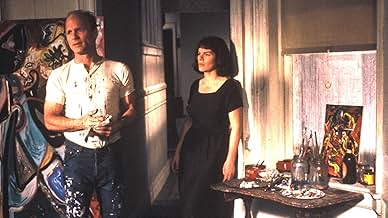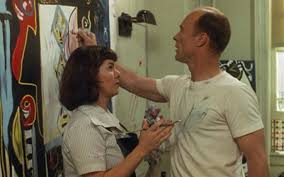Pollock (2000)

Pollock is a biographical drama released in 2000, directed by and starring Ed Harris. The film chronicles the life of the iconic American painter Jackson Pollock, known for his revolutionary drip painting technique and his significant role in the Abstract Expressionism movement.
The narrative primarily focuses on Pollock’s tumultuous life and career, exploring his struggles with fame, addiction, and his complex relationships, particularly with fellow artist Lee Krasner (Marcia Gay Harden). The film delves into Pollock’s creative process, highlighting his innovative methods and the emotional turmoil that often fueled his artistry.

Ed Harris delivers a compelling performance as Pollock, capturing both the genius and the flaws of the artist. His portrayal reflects Pollock’s intense passion for painting, as well as the destructive tendencies that plagued his personal life. Marcia Gay Harden’s portrayal of Lee Krasner earned her an Academy Award for Best Supporting Actress, showcasing the strength and resilience of a woman supporting a turbulent genius.

The film’s cinematography is striking, with visually arresting sequences that depict Pollock’s painting techniques. The camera work immerses viewers in his creative process, allowing them to appreciate the physicality and emotion behind his art. The sound design and musical score further enhance the film’s atmosphere, evoking the chaotic energy of Pollock’s work and life.
Pollock also explores themes of artistic integrity, the struggle for recognition, and the impact of mental health on creativity. It presents a nuanced view of the artist, portraying both his brilliance and his vulnerabilities, ultimately humanizing a figure often seen solely as a mythic persona in the art world.

In conclusion, Pollock is a poignant and visually engaging film that offers insight into the life of one of America’s most influential artists. Through powerful performances and a thoughtful exploration of the complexities of creativity, the film invites viewers to reflect on the interplay between art and personal struggle, cementing its place as a significant work in the biographical film genre.











